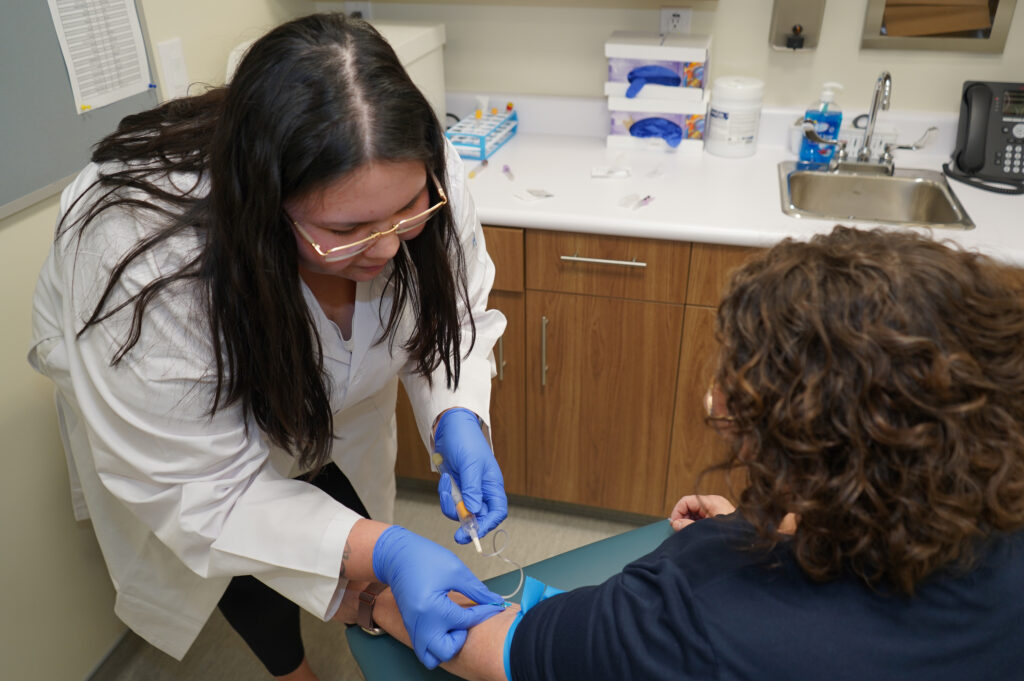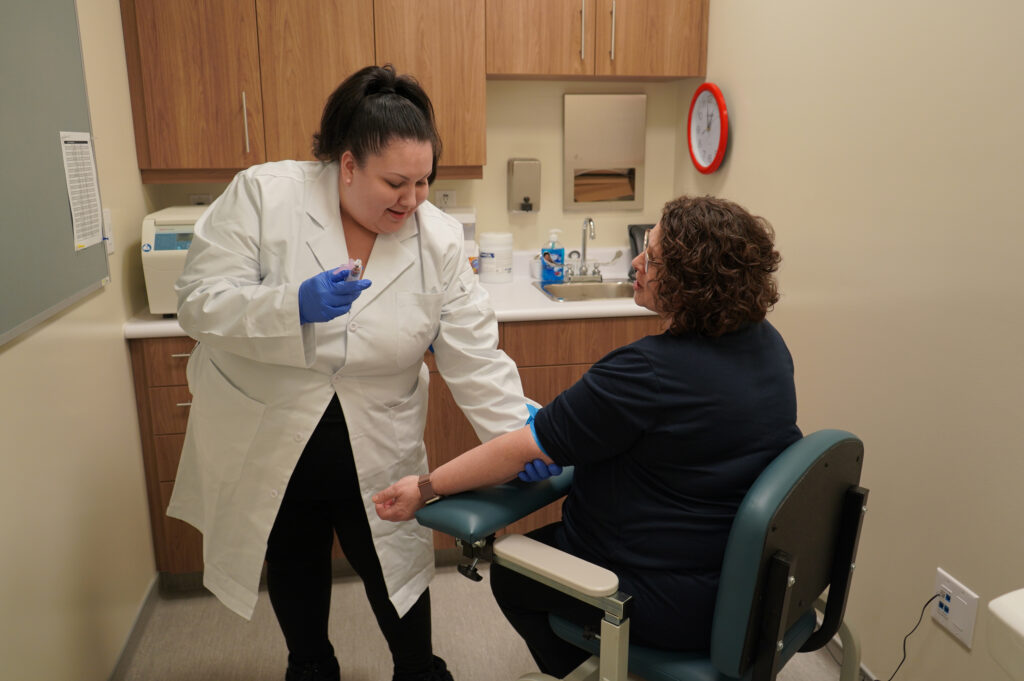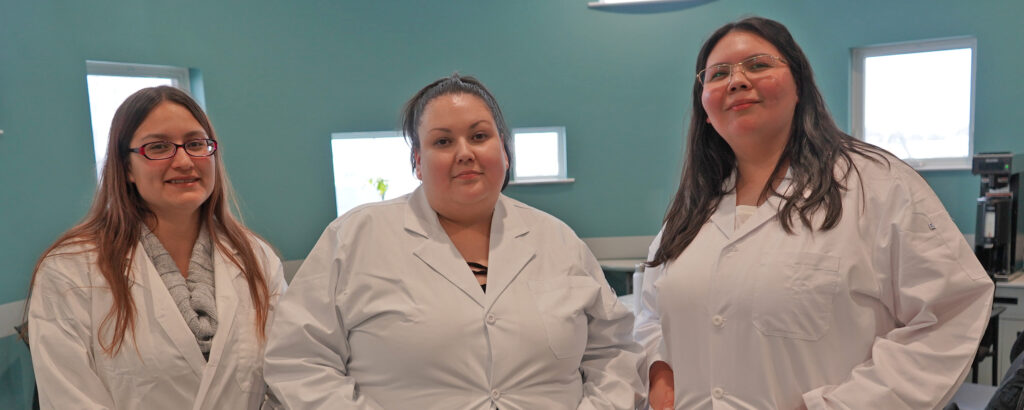“It is essential to bring lab services to our people.” – Grand Chief Daniels
FOR IMMEDIATE RELEASE: February 21, 2024
ANISHINAABE AND DAKOTA TERRITORY, MB — The Health Transformation Department at the Southern Chiefs’ Organization (SCO) is working in collaboration with partners to bring more comprehensive health services closer to home for citizens of Lake Manitoba First Nation by providing access to lab services in the Nation for the first time.
While Lake Manitoba has a new health centre with a lab on site, there are no staff who have training to deliver lab services. A new training program means the centre will soon be able to provide services that were not previously available. Members currently need to drive or get a ride to Eriksdale (about 38 kilometres away) or Ashern (about 52 kilometres away) to access lab services.
“SCO’s Health Transformation team has listened to voices of the citizens from 34 southern First Nations. These community members expressed there is a need to have more of our citizens working in the healthcare field within our Nations to bring a fuller suite of health care services closer to home,” shared Grand Chief Jerry Daniels. “SCO is extremely pleased to know Lake Manitoba residents are being trained to deliver lab services in their home Nation. This will create new career opportunities and will also build capacity for the delivery of comprehensive health services within Lake Manitoba.”
Three members of the Lake Manitoba First Nation started an in-community phlebotomy training program in January 2024. This training teaches students to draw blood and prepares participants to practice phlebotomy skills as knowledgeable, competent, and caring healthcare professionals who will become integral members of the Health Centre Team.
Project partners include the Lake Manitoba First Nation, Manitoba Health, Manitoba Shared Health, Interlake Regional Health Authority, and Red River College Polytechnic (RRC Polytech).
“Every Manitoban deserves quality care, close to home. We are proud to partner with SCO to help improve access to essential health-care services in Lake Manitoba First Nation,” said Health, Seniors and Long-Term Care Minister Uzoma Asagwara. “Our goal is to ensure that throughout our province, all Manitobans have access to convenient, timely and reliable lab services. It is particularly important in this case that care is being delivered by citizens of Lake Manitoba First Nation, who will be trained and working in their community.”
The training is focused on community. Participants can learn and practice clinical skills close to home. The training is being delivered as a series of courses using a blend of online, in-class lab, and clinical learning experiences. The students are expected to graduate in March 2024 and will be recognized for their efforts.
“The Lake Manitoba First Nation Health Care Team, along with our resident Elder Mary Maytwayashing will be on hand to support the three students during the entire program,” said Chief Cornell McLean of the Lake Manitoba Fist Nation. “It is essential we work to build more holistic health services to benefit our members. It is time to close the gap in life expectancy between First Nations citizens and non-First Nations people in Manitoba. Reducing barriers and having more accessible services in our Nations will help us reach that goal.”
“RRC Polytech is committed to building relationships that remove barriers for Indigenous learners by working collaboratively to identify the needs of students and communities, and delivering customized training solutions that allow learners to pursue their studies close to home,” said Jamie Wilson, RRC Polytech’s Vice President, Indigenous Strategy, Research and Business Development. “The specialized training we’ve developed demonstrates the power of partnership and the College looks forward to continuing to work with the Southern Chiefs’ Organization, Lake Manitoba First Nation, and provincial and regional health authorities to enhance and increase access to healthcare services, and empower all communities through education.”
The graduates of the program will continue to receive support as they continue to work at the Health Centre. The Interlake Regional Health Authority will also provide a mentor to help with the lab and equipment during and after the training is complete.
“This is one of the many projects that the Health Transformation team has been working on as SCO continues to develop a southern First Nations health authority,” concluded Karlene Debance, Chief Executive Officer for Health Transformation at SCO. “SCO is pleased to see that this training is underway. We wish the students all the success with the program and with their careers in the healthcare field.”
Our People, Our Health, Our Way
-30-
The Southern Chiefs’ Organization represents 34 First Nations and more than 87,000 citizens in what is now called southern Manitoba. SCO is an independent political organization that protects, preserves, promotes, and enhances First Nations peoples’ inherent rights, languages, customs, and traditions through the application and implementation of the spirit and intent of the Treaty-making process.
For media inquiries:
Email: Media@scoinc.mb.ca





